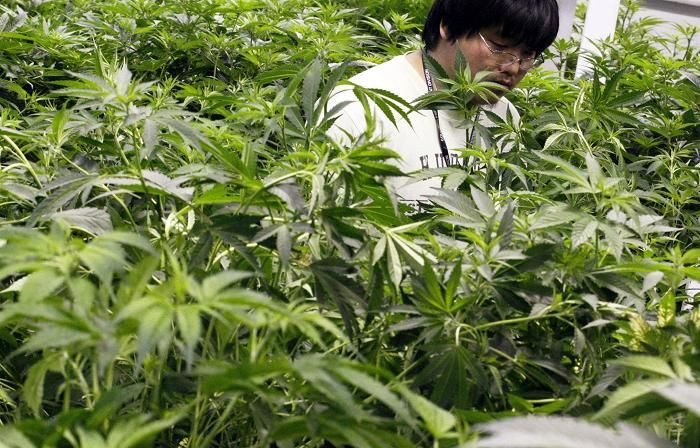Colorado, Washington Ask Feds To Honor Marijuana Laws

Seeking to avert a crackdown, Colorado and Washington have asked the federal government to respect newly passed measures legalizing recreational marijuana use.
In both states, voters approved historic ballot initiatives allowing residents who are 21 and older to possess up to an ounce of cannabis. That conflicts with federal drug laws, which rank marijuana as a dangerous substance on par with heroin and LSD.
Seventeen lawmakers, including members of Washington's and Colorado’s congressional delegations, wrote a letter to Attorney General Eric Holder asking the Department of Justice to “consider carefully the recent decisions by the people of Colorado and Washington” to allow small amounts of marijuana.
“We believe that it would be a mistake for the federal government to focus enforcement action on individuals whose actions are in compliance with state law,” the letter reads, citing former Supreme Court Justice Louis Brandeis’ comment that states are the “laboratory of democracy” and adding that Washington's and Colorado’s approach “embraces the goals of existing federal marijuana law” by undermining illegal drug trafficking and preventing violence.
Looming over the new laws is the prospect of raids similar to those the Department of Justice has conducted in California, where the federal government has in the last year targeted medical marijuana dispensaries. California lawmakers have accused the Obama administration of reversing a 2009 memo that suggested the federal government would leave alone legally sanctioned cannabis distributors, something alluded to in the latest letter to Attorney General Holder.
“These actions contradict the assurance made by DOJ in 2009 that the Department would not prioritize criminal charges against those who act in compliance with state law,” the letter reads. “It is also a poor use of limited federal resources.”
While California's experience may provide a hint of what is to come, the laws in Colorado and Washington are unprecedented in that they effectively create a state-regulated commercial marijuana industry. Colorado has experienced little federal action since beginning to allow medical marijuana in 2010.
"If you look at experience of Colorado, we have had a heavily regulated medical marijuana industry since 2010 and the federal government has largely left it alone," said Sam Kamin, a law professor at the University of Denver's Sturm College of Law. "It's well regulated, keeps out the criminal elements, and it makes sure marijuana doesn't end up in the black market. So the question is whether the promise if similar regulations on the retail market is enough to keep the feds at bay."
Rep. Diana DeGette (D-CO) has also filed legislation that would shield states that have legalized marijuana from federal action. The bill has gained bipartisan support, including from Republican Representative Mike Coffman of Colorado, who despite having been an outspoken opponent of his state’s initiative decriminalizing marijuana said the federal government should respect the law.
“In Colorado we’ve witnessed the aggressive policies of the federal government in their treatment of legal medicinal marijuana providers,” Coffman said in a statement. “My constituents have spoken and I don’t want the federal government denying money to Colorado or taking other punitive steps that would undermine the will of our citizens.”
Gov. John Hickenlooper of Colorado has urged residents of his state to proceed with caution until the situation is clarified, warning that “federal law still says marijuana is an illegal drug, so don’t break out the Cheetos or gold fish too quickly.” Hickenlooper spoke with Attorney General Holder on Friday, but his office was tight-lipped about details.
"They emphasized the need for the federal government to articulate what its position will be related to Amendment 64," Hickenlooper's spokesman, Eric Brown, said in a statement. "Everyone shared a sense of urgency and agreed to continue talking about the issue."
Law enforcement officials in Washington and Colorado have already taken steps to start implementing the new initiatives. Prosecutors in Washington have moved to dismiss more than 200 misdemeanor cases stemming from marijuana possession, and Boulder County, Colo., District Attorney Stan Garnett announced his office would dismiss pending cases involving less than an ounce of marijuana.
"Although the effective date of I-502 is not until Dec. 6, there is no point in continuing to seek criminal penalties for conduct that will be legal next month," King County, Wash., prosecutor Dan Satterberg told the Seattle Times last week.
© Copyright IBTimes 2024. All rights reserved.





















